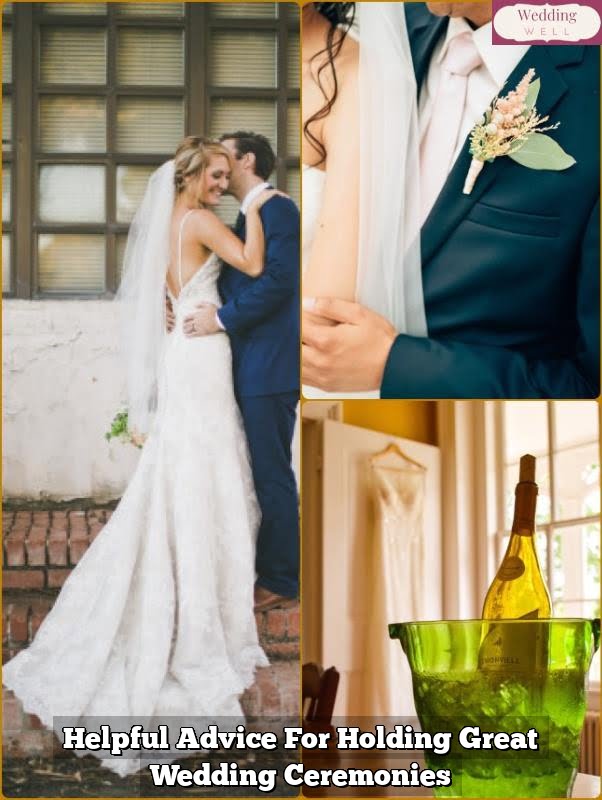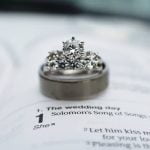Have you ever wondered “how long are wedding ceremonies?” The length of a wedding ceremony is often an important consideration for couples as they plan their special day. The significance of the wedding ceremony cannot be understated, as it serves as the formal declaration of a couple’s commitment to each other and marks the beginning of their life together. However, the length of the ceremony can have a significant impact on the overall flow and atmosphere of the event.
As we delve into this topic, we will explore traditional wedding ceremonies and how the typical duration varies across different cultural practices. From here, we will also take a look at civil ceremonies, religious ceremonies, and personalized ceremonies to understand how each type can influence the length of a wedding ceremony.
Additionally, we will examine various factors that can affect ceremony length, such as the number of guests, readings, and rituals. Finally, we will provide tips for planning a ceremony timeline to help couples effectively manage the duration of their wedding ceremony.
Overall, understanding the relevance and impact of the length of wedding ceremonies can be valuable in helping couples create a memorable and meaningful experience for themselves and their loved ones on this special occasion. Let’s dive into our exploration of wedding ceremony lengths and gain insights into this essential aspect of wedding planning.
Traditional Wedding Ceremonies
When it comes to the length of wedding ceremonies, different cultures have their own unique traditions and customs that influence how long these ceremonies last. In some cultures, such as those in India, wedding ceremonies can span several days with a wide array of rituals and celebrations. On the other hand, some Western cultures have relatively shorter wedding ceremonies that typically last between 20 to 30 minutes. Understanding these cultural differences can help couples plan their ideal wedding ceremony timeline.
In India, for example, Hindu weddings are known for their elaborate and extensive ceremonies that can last anywhere from one to seven days. The length of these ceremonies is due to the numerous rituals and customs involved, each with its own significance and symbolism.
Conversely, in Western cultures like the United States and many European countries, traditional church weddings usually range from 30 to 60 minutes in duration. Understanding these cultural variations is essential for couples who come from different backgrounds or want to incorporate elements from various traditions into their ceremony.
Aside from Hindu and Western wedding ceremonies, there are countless other cultural practices around the world that impact the length of wedding ceremonies. From African customs to Asian traditions, each culture has its own unique way of celebrating marriages with distinct rituals and timelines. Embracing these diverse practices can bring a rich tapestry of cultural significance to a couple’s special day.
| Cultural Tradition | Typical Duration |
|---|---|
| Hindu Weddings (India) | 1-7 days |
| Western Church Weddings (USA/Europe) | 30-60 minutes |
| African Customs | Varies depending on specific tradition |
Civil Ceremonies
Civil wedding ceremonies offer couples a non-religious option for exchanging vows and legally binding their union. The average length of a civil ceremony is typically shorter than traditional religious ceremonies, lasting around 15-30 minutes. However, this can vary depending on the specific requirements of the local government or courthouse where the ceremony takes place.
In the United States, for example, many states have specific legal requirements that must be included in a civil wedding ceremony. These may include the exchange of vows, rings, and a declaration of marriage by an authorized officiant. As a result, the duration of civil ceremonies can be influenced by these legal components.
It’s important for couples to research the legal requirements for civil ceremonies in their location to ensure that they plan enough time for the proceedings. In addition to this, some couples may opt to personalize their civil ceremony with readings, music, or personal vows, which can also impact how long the ceremony lasts.
| Aspect | Description |
|---|---|
| Average Length | 15-30 minutes |
| Legal Requirements | Vows, rings, declaration of marriage |
| Location Influence | Different rules and regulations based on location |
Religious Ceremonies
When it comes to religious wedding ceremonies, the length can vary significantly depending on the specific traditions and customs of a particular faith. Here are some examples of the typical duration of religious wedding ceremonies for different religions:
- Christianity: In Christian weddings, the ceremony usually lasts for about 30 minutes to an hour, depending on whether it’s a full mass or a shorter service.
- Judaism: A traditional Jewish wedding ceremony, known as a “chuppah,” typically lasts around 20 to 30 minutes, but can be longer if additional rituals or customs are included.
- Hinduism: Hindu weddings are known for their rich and elaborate rituals, and therefore can last anywhere from one to three hours or even longer, especially if there are multiple ceremonies involved.
It’s important for couples planning a religious ceremony to consult with their officiant or religious leader to understand the specific timeline and requirements for their chosen tradition. Additionally, they should consider how their own preferences and family customs may impact the length of the ceremony.
Factors such as the number of guests, readings, music, and symbolic rituals also play a significant role in determining how long a religious wedding ceremony will last. As such, couples should carefully consider these elements when planning their ceremony timeline in order to ensure that it aligns with their vision for their special day. Ultimately, regardless of its duration, a religious wedding ceremony holds deep significance for those who choose to incorporate their faith into this momentous occasion.
Personalized Ceremonies
Personalizing a wedding ceremony is a popular choice for many couples as it allows them to tailor the event to reflect their unique love story and values. One of the benefits of personalizing a ceremony is the flexibility in duration, allowing couples to create a meaningful and memorable experience for themselves and their guests. This section will explore the various ways in which couples can personalize their wedding ceremony and how it can impact the overall length of the event.
Customized Vows and Readings
One of the most common ways that couples personalize their wedding ceremony is through customized vows and readings. By writing their own vows or selecting readings that hold special meaning to them, couples can add a personal touch to the ceremony. While this may slightly extend the length of the ceremony, it provides an opportunity for couples to express their love and commitment in a way that is truly unique to them.
Rituals and Traditions
Another way that couples personalize their wedding ceremony is by incorporating rituals and traditions that are significant to their relationship. This may include cultural customs, religious rituals, or symbolic gestures such as unity ceremonies or handfasting. While these additions can add depth and meaning to the ceremony, they may also impact its duration depending on the number of rituals included.
Special Performances or Tributes
Some couples choose to include special performances or tributes as part of their personalized ceremony. This might involve musical performances, dance routines, or video presentations that celebrate important moments in their relationship. While these elements can be incredibly moving and memorable, they should be carefully planned to ensure they enhance rather than prolong the overall duration of the ceremony.
Ultimately, personalized ceremonies offer couples an opportunity to create a wedding day that authentically reflects who they are as individuals and as a couple. By thoughtfully incorporating personal touches into their ceremony, couples can set the tone for a celebration that is truly unforgettable for everyone involved. The key is finding a balance between personalization and practicality in order to ensure that the ceremony remains meaningful without becoming excessively lengthy.
Factors Affecting Ceremony Length
When it comes to planning a wedding ceremony, the length of the event is an important consideration. Several factors can impact how long a wedding ceremony lasts, and couples should be mindful of these elements when creating their timeline. The number of guests, readings, and rituals all play a role in determining the duration of the ceremony.
Firstly, the number of guests in attendance can significantly influence how long a wedding ceremony will last. A larger guest list may require more time for seating and organizing the processional and recessional. Additionally, accommodating a larger audience means that vows and readings may need to be projected or amplified so that everyone can hear, adding extra time to the proceedings.
Secondly, readings are often incorporated into wedding ceremonies to add personal touches and meaning. From religious scriptures to poetry or personal anecdotes, readings can vary in length and quantity. Couples should consider how many readings they want and the length of each reading when creating their ceremony timeline.
Finally, rituals such as unity candle lighting or sand ceremonies can also impact the duration of a wedding ceremony. These symbolic actions are often meaningful to couples but can add significant time to the overall event. It’s essential for couples to factor in any rituals they wish to include and allocate sufficient time for them within their ceremony schedule.
Considering these factors can help couples effectively manage and plan for the length of their wedding ceremony. By being intentional about guest count, readings, and rituals, couples can create a meaningful and memorable experience for themselves and their loved ones on their special day.
- Factors Affecting Ceremony Length:
- Number of guests
- Readings
- Rituals
Tips for Planning a Ceremony Timeline
Planning a wedding ceremony can be an exciting but challenging task for couples. One important aspect to consider is the duration of the ceremony, as it sets the tone for the entire event. Couples must carefully plan and manage the timeline of their wedding ceremony to ensure that it reflects their vision and meets the expectations of their guests.
Consider Your Vision
Before planning the timeline for your wedding ceremony, take some time to consider your vision for the day. Think about what elements are most important to you and your partner. Do you envision a short and sweet ceremony or a more elaborate one with cultural rituals and readings? By understanding your vision, you can better plan the timeline to align with your preferences.
Consult With Officiant or Celebrant
It’s essential to consult with your officiant or celebrant when planning your ceremony timeline. They will provide valuable insight into how long certain rituals or readings typically take and can help you make necessary adjustments. Additionally, they can offer suggestions on how to personalize the ceremony without significantly impacting its duration.
Rehearse and Time Your Ceremony
Once you have finalized the order of events for your wedding ceremony, consider rehearsing and timing each segment. This will give you a clear idea of how long each part will take and if any adjustments need to be made. It’s also an opportunity to make sure that transitions between different segments flow smoothly, ultimately contributing to a well-managed timeline.
By effectively planning and managing the duration of their wedding ceremonies, couples can create a memorable and meaningful experience for themselves and their guests. Following these tips will help ensure that their vision is realized while maintaining a well-organized event that flows seamlessly from start to finish.
Conclusion
In conclusion, the length of wedding ceremonies varies significantly depending on cultural, religious, and personal preferences. Traditional wedding ceremonies can range from a few hours to several days, while civil ceremonies typically last between 15 to 30 minutes. Religious ceremonies may also have varying durations based on the specific traditions and rituals involved. Couples who choose to personalize their ceremony have the flexibility to determine the duration based on their preferences and the elements they wish to include.
The significance of the length of a wedding ceremony lies in its ability to reflect the values and beliefs of the couple, as well as their cultural and religious backgrounds. It is important for couples to consider the impact of ceremony length on their guests, particularly when planning a personalized ceremony with unique elements.
Planning a ceremony timeline involves careful consideration of various factors, such as the number of guests, readings, and rituals, in order to ensure a smooth and meaningful experience for everyone involved.
Ultimately, regardless of the specific traditions or customs followed in a wedding ceremony, what matters most is that it reflects the love and commitment between the couple. While practical considerations are important, such as legal requirements for civil ceremonies or time constraints for certain venues, it is essential for couples to prioritize what feels right for them and their relationship when deciding how long their wedding ceremony should be.
After all, it is a once-in-a-lifetime event that should be cherished and celebrated in a way that is meaningful to them.
Frequently Asked Questions
How Long Is Typical Wedding Ceremony?
The typical wedding ceremony usually lasts around 30 minutes to an hour, depending on cultural or religious traditions, the couple’s preferences, and the inclusion of additional customs or rituals.
What Is the 30 5 Minute Rule for Weddings?
The 30-5 minute rule for weddings is a guideline that suggests no guest should be more than 30 minutes away from the ceremony location or more than 5 minutes away from the reception venue. This helps ensure that guests can easily transition between the two without significant delays.
How Long Should a Wedding Celebration Last?
A wedding celebration can last anywhere from a few hours to a full day, depending on the schedule of events planned by the couple. Some celebrations may include a short and sweet ceremony followed by a cocktail hour and dinner reception, while others may include additional activities or events that extend the celebration throughout the day and evening.
The duration is typically based on the couple’s preferences and their vision for how they want to celebrate with their guests.

Welcome to my blog about home and family. This blog is a place where I will share my thoughts, ideas, and experiences related to these important topics. I am a stay-at-home mom with two young children. I hope you enjoy reading it! and may find some helpful tips and ideas that will make your home and family life even better!





